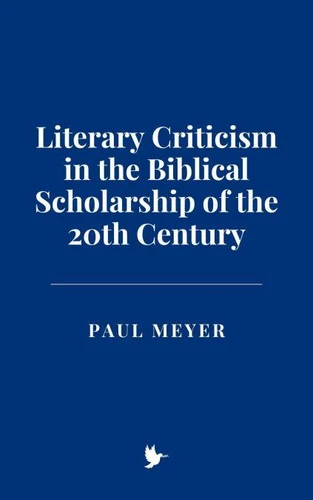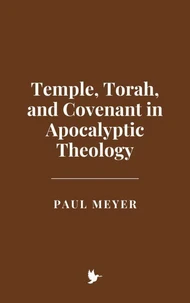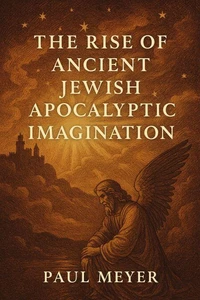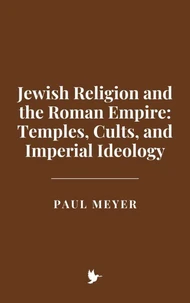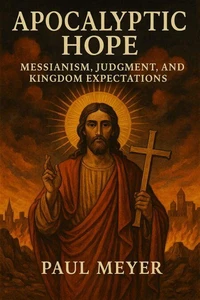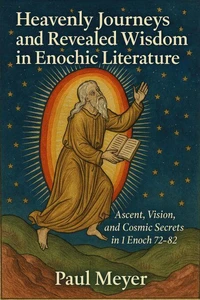Literary Criticism in the Biblical Scholarship of the 20th Century
Par :Formats :
Disponible dans votre compte client Decitre ou Furet du Nord dès validation de votre commande. Le format ePub est :
- Compatible avec une lecture sur My Vivlio (smartphone, tablette, ordinateur)
- Compatible avec une lecture sur liseuses Vivlio
- Pour les liseuses autres que Vivlio, vous devez utiliser le logiciel Adobe Digital Edition. Non compatible avec la lecture sur les liseuses Kindle, Remarkable et Sony
 , qui est-ce ?
, qui est-ce ?Notre partenaire de plateforme de lecture numérique où vous retrouverez l'ensemble de vos ebooks gratuitement
Pour en savoir plus sur nos ebooks, consultez notre aide en ligne ici
- FormatePub
- ISBN8230036135
- EAN9798230036135
- Date de parution02/02/2025
- Protection num.pas de protection
- Infos supplémentairesepub
- ÉditeurIndependently Published
Résumé
This book offers a comprehensive exploration of the diverse and evolving approaches to biblical scholarship, spanning from historical-critical methods to contemporary literary, postmodern, and interdisciplinary frameworks. Beginning with an analysis of the Bible as a theological and historical text, the work traces the development of various interpretative methodologies, including narrative criticism, rhetorical criticism, feminist readings, and postcolonial perspectives.
It highlights the shift from static, doctrinal readings to dynamic, reader-centered interpretations, emphasizing how the Bible has been used both to justify and to challenge political, social, and cultural norms across history. The book also delves into the Bible's ongoing role in shaping modern discourse on social justice, liberation, and ethical thought, examining its impact on movements such as abolitionism, civil rights, and contemporary environmentalism.
Through an interdisciplinary lens, it explores the Bible's reception across cultures and time periods, with particular attention to its role in empowering marginalized communities. Drawing from key figures in biblical studies, literary theory, theology, and cultural criticism, this work provides an expansive view of the Bible's multifaceted role in both ancient and modern contexts. By situating the Bible in a broader cultural, political, and historical framework, the book invites readers to reconsider the text not only as a sacred document but as a living, evolving work that continues to resonate with contemporary issues.
The future of biblical scholarship is presented as one marked by greater inclusivity, innovation, and global engagement, offering new directions for how the Bible might be interpreted and applied in the 21st century.
It highlights the shift from static, doctrinal readings to dynamic, reader-centered interpretations, emphasizing how the Bible has been used both to justify and to challenge political, social, and cultural norms across history. The book also delves into the Bible's ongoing role in shaping modern discourse on social justice, liberation, and ethical thought, examining its impact on movements such as abolitionism, civil rights, and contemporary environmentalism.
Through an interdisciplinary lens, it explores the Bible's reception across cultures and time periods, with particular attention to its role in empowering marginalized communities. Drawing from key figures in biblical studies, literary theory, theology, and cultural criticism, this work provides an expansive view of the Bible's multifaceted role in both ancient and modern contexts. By situating the Bible in a broader cultural, political, and historical framework, the book invites readers to reconsider the text not only as a sacred document but as a living, evolving work that continues to resonate with contemporary issues.
The future of biblical scholarship is presented as one marked by greater inclusivity, innovation, and global engagement, offering new directions for how the Bible might be interpreted and applied in the 21st century.
This book offers a comprehensive exploration of the diverse and evolving approaches to biblical scholarship, spanning from historical-critical methods to contemporary literary, postmodern, and interdisciplinary frameworks. Beginning with an analysis of the Bible as a theological and historical text, the work traces the development of various interpretative methodologies, including narrative criticism, rhetorical criticism, feminist readings, and postcolonial perspectives.
It highlights the shift from static, doctrinal readings to dynamic, reader-centered interpretations, emphasizing how the Bible has been used both to justify and to challenge political, social, and cultural norms across history. The book also delves into the Bible's ongoing role in shaping modern discourse on social justice, liberation, and ethical thought, examining its impact on movements such as abolitionism, civil rights, and contemporary environmentalism.
Through an interdisciplinary lens, it explores the Bible's reception across cultures and time periods, with particular attention to its role in empowering marginalized communities. Drawing from key figures in biblical studies, literary theory, theology, and cultural criticism, this work provides an expansive view of the Bible's multifaceted role in both ancient and modern contexts. By situating the Bible in a broader cultural, political, and historical framework, the book invites readers to reconsider the text not only as a sacred document but as a living, evolving work that continues to resonate with contemporary issues.
The future of biblical scholarship is presented as one marked by greater inclusivity, innovation, and global engagement, offering new directions for how the Bible might be interpreted and applied in the 21st century.
It highlights the shift from static, doctrinal readings to dynamic, reader-centered interpretations, emphasizing how the Bible has been used both to justify and to challenge political, social, and cultural norms across history. The book also delves into the Bible's ongoing role in shaping modern discourse on social justice, liberation, and ethical thought, examining its impact on movements such as abolitionism, civil rights, and contemporary environmentalism.
Through an interdisciplinary lens, it explores the Bible's reception across cultures and time periods, with particular attention to its role in empowering marginalized communities. Drawing from key figures in biblical studies, literary theory, theology, and cultural criticism, this work provides an expansive view of the Bible's multifaceted role in both ancient and modern contexts. By situating the Bible in a broader cultural, political, and historical framework, the book invites readers to reconsider the text not only as a sacred document but as a living, evolving work that continues to resonate with contemporary issues.
The future of biblical scholarship is presented as one marked by greater inclusivity, innovation, and global engagement, offering new directions for how the Bible might be interpreted and applied in the 21st century.

